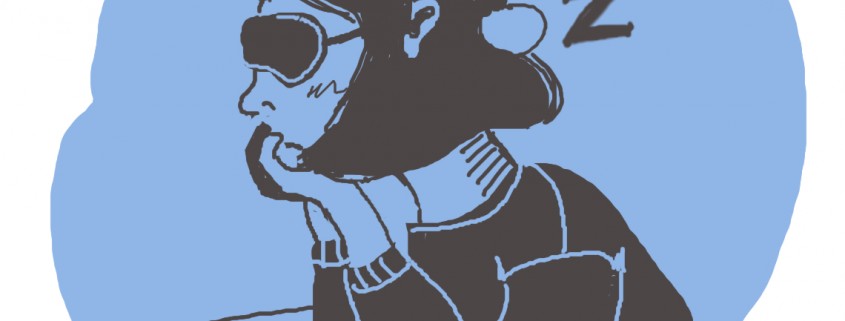To USC: Ban the dreaded 8 a.m. classes
Lake Superior State University in Sault Ste. Marie, Mich., recently announced that starting Fall 2016, 8 a.m. classes will no longer exist. Instead, the university is instituting a “common hour” program to allow students and faculty the availability to participate in university assemblies and activities. Though this change has predominantly been proposed to encourage university involvement, the banning of 8 a.m. classes can also have significant effects on the overall well-being and quality of life of students. Supported by various sleep studies, an increase in hours of sleep can optimize university experience, especially with regard to maximizing academic potential. USC should follow Lake Superior State University’s lead in adopting this policy to improve the environment for students and faculty alike.
The program at this Michigan university was proposed to increase student and faculty participation in school activities and forums relating to university matters, as well as to the obvious benefit of relieving students and professors from tedious early classes. At USC, students and faculty could benefit from a later schedule. Many aspects of college life are inevitably later in the evenings. Most on-campus organizations at USC, for instance, schedule their weekly meetings at night, rendering it difficult to allot enough time for sleep, studying and participating in extracurricular activities.
Sleep scientists are now advocating for secondary schools to begin classes at 10 a.m. and universities at 11 a.m., arguing that shifting the school day later has, if anything, no potential downside, while earlier classes have been proven to negatively affect a student’s overall well-being. Further studies have supported the notion that later classes will help curb the probability of developing health issues, depression and a decline in academic performance. Normal sleep involves circadian rhythms and homeostatic sleep drive. Scientists contend that adolescents are biologically predisposed to sleep later due to delayed circadian cycles. Thus, sleep hours are shifted to later in the night. Students go to sleep at later hours, meaning that early classes can contribute to sleep deprivation, indicating an average sleep time below the recommended nine hours. Irregular sleep cycles affect concentration and learning. Moreover, early morning classes lead students to rush to arrive on time, which often results in breakfast being neglected and leaves no time for the brain to awaken and prepare itself to absorb information. Students with their heads on their desks and their eyes closed are not digesting the information being taught.
Given the consequences of early morning classes and the potential for greater involvement given a late start schedule, USC should seriously consider changing its class itinerary. Eliminating 8 a.m. classes will not only benefit student and faculty involvement in university matters, but it will also improve student health. It is time for the administration to reconsider the long-standing, institutionalized early morning classes and ban the 8 a.m.


There is no way this is not a prank article. How in the world is 8 am considered an unreasonable hour to be in class? It seems every year, young adults are creating an artificial universe filled with safe spaces and brunch time wake up calls.
“Students with their heads on their desks and their eyes closed are not digesting the information being taught.” — To this I say – man up and pick your head up off the desk. Once your mommy and daddy stops paying over $50K a year for your educational, experience, you will realize you have to do a lot of things you do not want to do – once again – man up.
I say ban school on Mondays and Fridays. Why let work get in the way of fun?
Last time I checked, the normal work is 08:00am – 5:00pm. Get used to it and structure your classes, studying and the participation in “extra curricular activities” around that window. That’s life, kid.